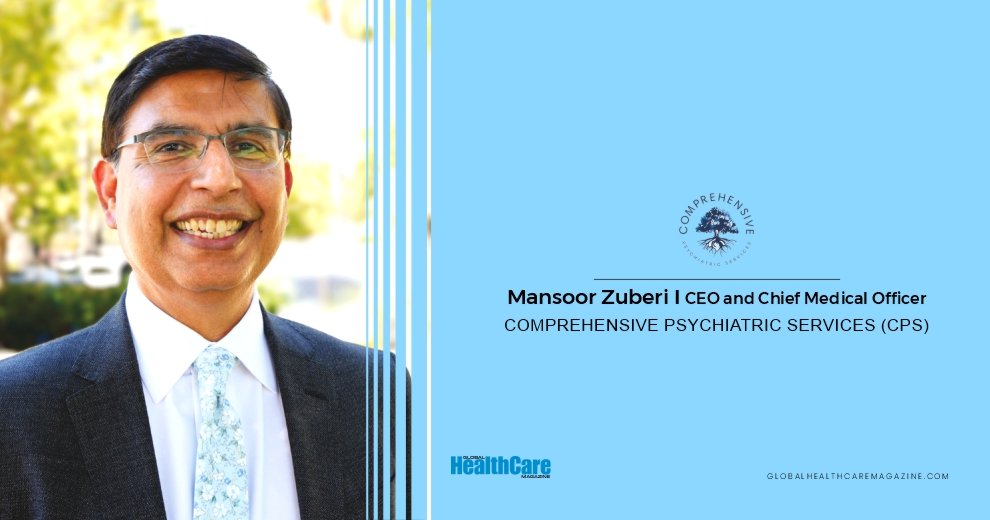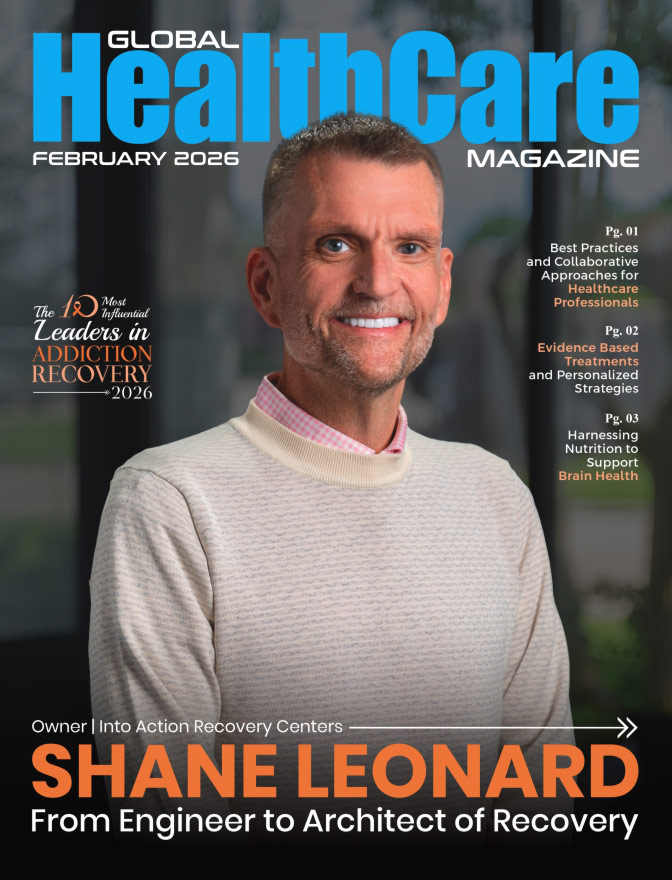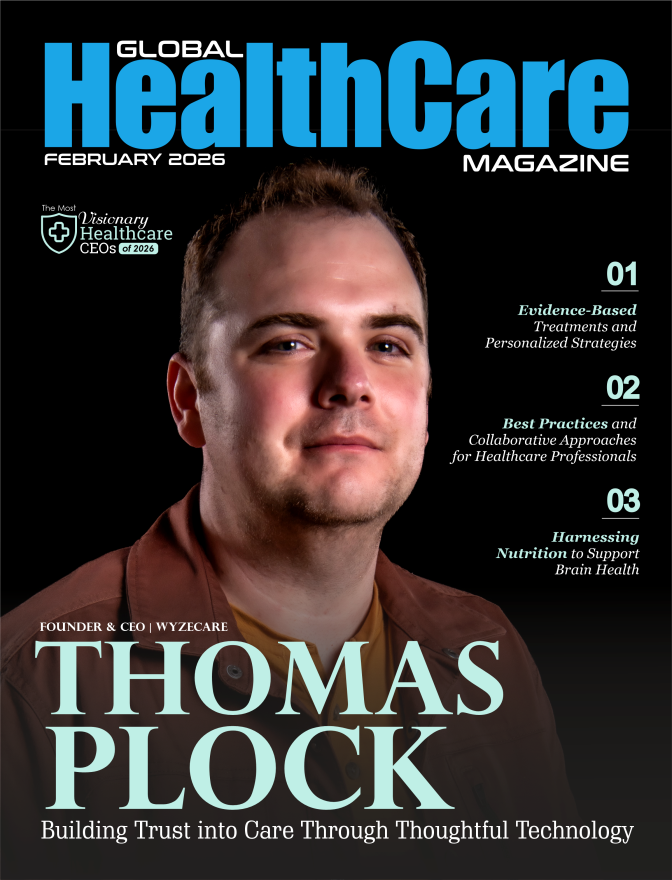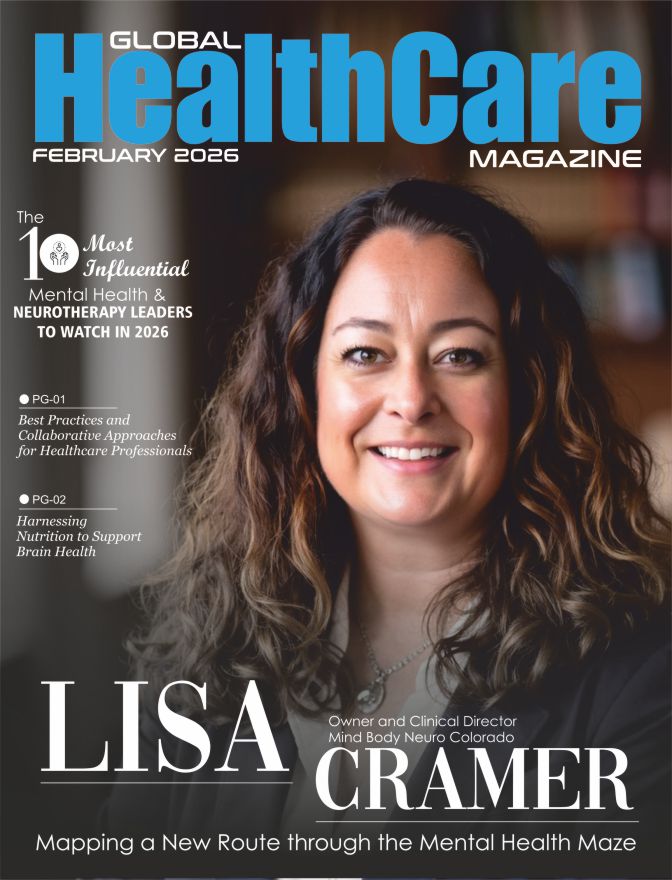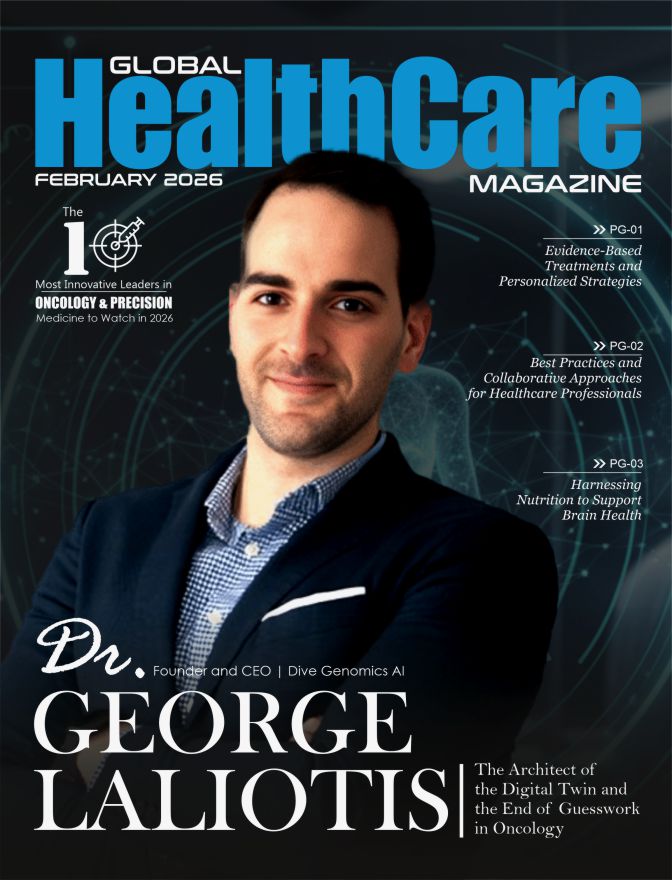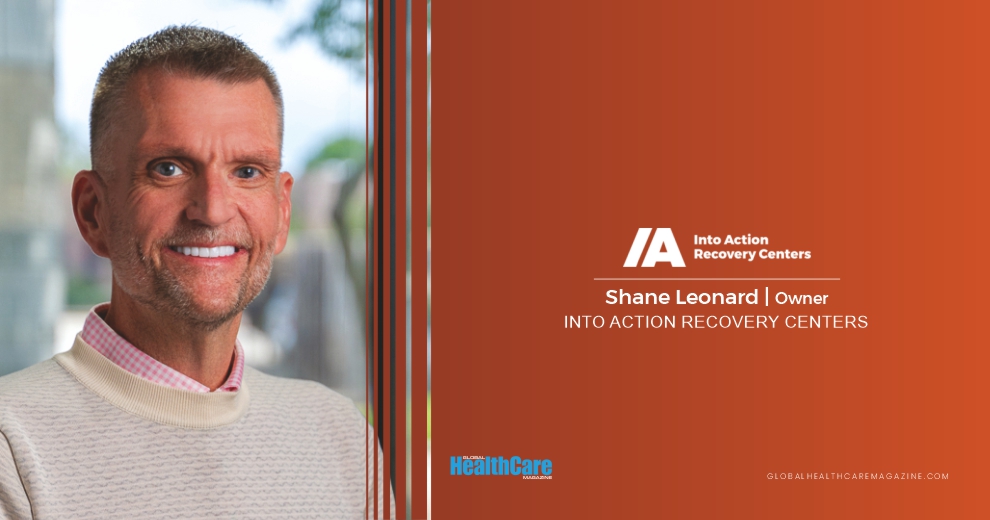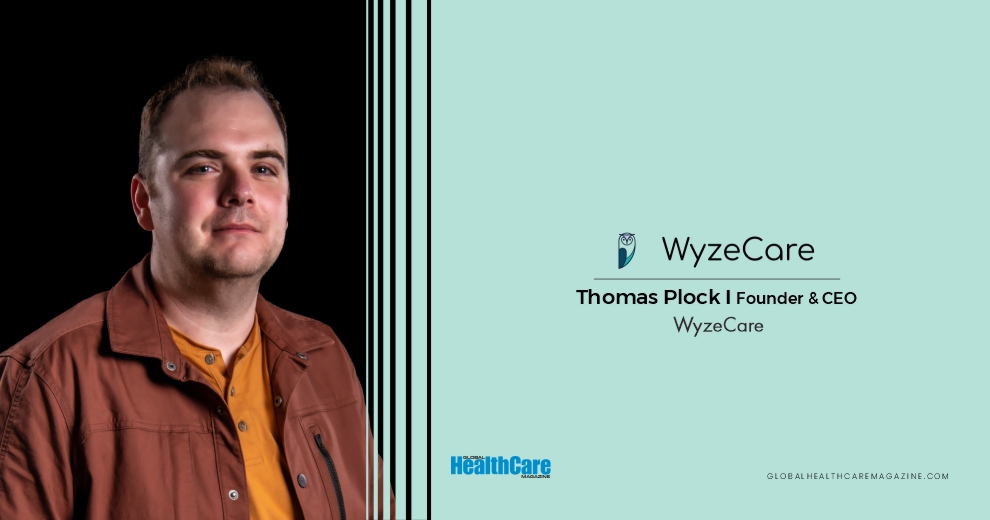It began with an observation, a quiet dissonance that a young medical intern in Karachi, Pakistan, could not unsee. Surrounded by brilliant professors, masters of their respective specialties, Mansoor Zuberi noticed a curious and troubling pattern. He saw a profound expertise directed at a single organ, a specific system, a localized disease. But in this laser focus, he felt something essential was being missed. The person. The whole, complex, breathing human being in whom these systems resided was sometimes relegated to the background. This realization was not a loud epiphany but a slow, gathering conviction. It sparked a shift in his perspective and set him on a lifelong quest to become a different kind of doctor, one who would always see the entire person, not just the diagnosis attached to them.
This foundational idea, born in the bustling halls of Sindh Medical College, would become the architectural blueprint for his entire career. It would guide him across the world to the United States, through a residency and fellowship, and ultimately lead him to reject a healthcare model he saw as fundamentally flawed. It would compel him, a man trained to heal minds, to become an entrepreneur, a business leader, and an advocate for a more humane way of practicing medicine. He did not set out to build an empire of clinics; he simply set out to build a space where he and others like him could be the kind of doctors they were always meant to be.
A Deeper Understanding
The journey from Karachi to California was more than a change in geography; it was a deepening of purpose. After arriving in the United States, Dr. Zuberi began conducting research at Stanford University alongside a psychiatrist. The work was immersive, and he quickly discovered a profound sense of fulfillment in the field. The intellectual challenge was invigorating, but it was the deep, human connection at the heart of psychiatry that resonated with the conviction he had formed as an intern. This experience solidified his decision. He would dedicate his life to understanding and treating the complexities of the human mind.
He pursued his psychiatry residency at King/Drew Medical Center in Los Angeles, a place where he was confronted daily with the raw, unfiltered realities of mental illness. During his training, another pattern began to emerge, one that would add a new layer to his understanding. He saw that the roots of many adult psychiatric conditions were anchored in the soil of early childhood experiences. This powerful insight motivated him to specialize further, leading him to a fellowship in Child and Adolescent Psychiatry at the University of Southern California.
This additional training did more than just equip him to help children more effectively. It gave him a developmental lens through which to view all of his patients. He understood that the adult sitting before him was a living history, a person shaped by the joys, traumas, and attachments of their youth. This deeper understanding of developmental factors made him a more insightful, more comprehensive, and ultimately, a more effective psychiatrist for patients of all ages.
The Conveyor Belt and the Crossroads
Armed with this holistic perspective, Dr. Zuberi entered a healthcare system that seemed designed to subvert it. During his residency and fellowship, he came to a stark and disillusioning realization. The very nature of modern clinical settings often stood in direct opposition to the kind of care he believed in. He saw that every psychiatric patient was unique, a universe of personal history, challenges, and strengths. To provide quality care requires time, empathy, and a deep, unhurried understanding. The system, however, was not built for depth. It was built for volume.
“In many clinical settings, patients were treated like they were on a conveyor belt,” he recalls. Physicians were given a rigidly defined window of time, a slot determined not by clinical judgment but by administrative policies, to see a patient, understand their needs, make a diagnosis, and prescribe a treatment. The pressure was immense. Dr. Zuberi knew he could not thrive, nor could his patients truly heal, in a system where an administrator in a distant office was dictating the sacred measure of time he could spend with a person in need.
This was his professional crossroads. He could either accept the constraints of the system or forge his own path. He chose the latter. “I decided I would pursue private practice, where I could tailor treatment to each patient’s needs,” he says. “The length and nature of care should always be determined by the treating physician, not by arbitrary time slots set by insurance companies or healthcare administrators.”
The decision was liberating, but the execution was daunting. He soon discovered a glaring gap in his medical education. He had been meticulously trained in how to diagnose and treat, but no one had ever taught him how to run a business or open a practice. He reached out to his mentors and professors. They were supportive and encouraging, but none could offer the practical, step by step guidance he so desperately needed.
Just as the path seemed most uncertain, he met Dr. Widroe, a psychiatrist who was part of a small, expense-sharing group in Walnut Creek, California. Dr. Zuberi joined him, and that formative experience planted the seed for what was to come. He recognized that his desire for autonomy and patient-centered care was not unique. Many psychiatrists shared his frustration but, like him, lacked the tools or guidance to step into private practice. From this shared need, a new vision was born. He and Dr. Widroe co-founded a new version of Comprehensive Psychiatric Services (CPS) and its parent company, American Psychiatric Centers.
The mission was simple but revolutionary. They would create a platform that empowers psychiatrists to provide care based on patient needs, not administrative constraints. CPS resonated immediately, both with doctors and patients. Physicians flocked to a model that offered them the autonomy to practice medicine with compassion, thoughtfulness, and flexibility. Patients, in turn, felt the profound difference in their care. And so, what began as one doctor’s personal quest to practice with integrity grew into a thriving, scalable model for private psychiatric care.
The Clinician and the CEO
Today, as the CEO and Chief Medical Officer of CPS, Dr. Zuberi wears two equally important hats. He is a practicing psychiatrist, responsible for overseeing the clinical quality of care, and he is the chief executive, ensuring the business and operational aspects of the clinics run efficiently. It is a delicate balancing act, a constant navigation between the demands of clinical excellence and sound business strategy.
When a decision presents a crossroads between the two, his guiding principle is unwavering. “I firmly believe that the clinical side must always take precedence,” he states firmly. “Patient care is the core of everything we do.”
He is quick to credit his team for making this balance possible. A highly capable Director of Operations, a CFO, and a team of dedicated managers serve as the cornerstone of the organization, allowing him to focus on the clinical mission with the confidence that the day-to-day operations are in expert hands. He also speaks with deep gratitude about the team of like-minded physicians he has gathered over the years, doctors who share his profound commitment to excellent psychiatric care. Their integrity and professionalism, he says, reinforce the collaborative, patient-focused environment that is the hallmark of CPS.
Innovation and Advocacy
This commitment to patient care has naturally led CPS to embrace cutting-edge treatments. Dr. Zuberi has become a passionate advocate for Transcranial Magnetic Stimulation (TMS), a non-invasive procedure that uses magnetic fields to stimulate nerve cells in the brain. The treatment specifically targets key areas of the brain that show reduced activity in individuals with depression and OCD. Patients recline comfortably while a small magnetic coil is positioned on their head, delivering gentle pulses that can positively influence neurotransmitter levels.
The results have been remarkable. TMS has shown an 83% response rate and a 62% remission rate for patients with depression. For many who have not found relief through traditional therapies, it has been life changing. Now, Dr. Zuberi and his team are actively advocating for insurance companies to cover TMS even as a first line of treatment, working to make this powerful therapy more accessible to all who could benefit.
This drive to innovate and advocate is born from a clear eyed understanding of the systemic barriers that still plague mental healthcare. He points to a fragmented system with poor coordination between inpatient, emergency, and outpatient services. He sees how large hospital systems and insurance companies still treat mental health as a secondary concern, leading to underinvestment and inconsistent standards. And he recognizes the persistent stigma that prevents so many from seeking help. The solution, he believes, is to put healthcare providers back in the driver’s seat as the key decision makers, not insurance companies or private equity firms.
The Crucible and the Canvas
The strength of this physician-led model was never more apparent than during the early days of the COVID-19 pandemic. California was one of the first states hit hard, a time of profound uncertainty and fear. The need for mental health care skyrocketed just as in-person services became impossible.
CPS responded immediately. “We launched Telehealth services the very next day,” Dr. Zuberi recalls. The entire team, from clinicians to administrative staff, came together, shifting the entire operation to a work-from-home model overnight. It was a make-or-break situation, a true test of the organization’s resilience and shared commitment. They not only survived; they emerged stronger, with a new and vital service that would continue to expand access to care long after the lockdowns ended. That moment, he says, was a defining one, shaping the company into what it is today.
When Dr. Zuberi reflects on his proudest accomplishments, they are not singular awards but a series of tangible, hard-won milestones. Opening the second CPS location was a major milestone, proving the model could grow. Expanding beyond Northern California into Southern California was another significant step. Starting the TMS line of treatment represented a deep commitment to innovation. And recently, reaching the milestone of having over 130 doctors working across the organization was a powerful affirmation of how far they have come.
Away from the demands of his dual roles, he finds balance and perspective in his family and a newfound passion. He speaks of his wife with deep reverence, crediting her unwavering support as the foundation upon which he has built his career. His two daughters, he says, keep him grounded and remind him of what truly matters, filling his life with energy and laughter. In recent years, he has also discovered a passion for painting. He works with acrylics, creating landscape pieces that have become a meaningful creative outlet. It is perhaps a fitting hobby for a man who has spent his life learning to see the whole picture, whether it is on a canvas or in the complex, beautiful landscape of a human life.
Looking to the future, Dr. Zuberi’s goals are clear. He plans to grow the TMS operations and expand the CPS presence beyond California. He is also actively collaborating with other healthcare leaders to address the fragmentation of the mental health system, aiming to build a more integrated and effective model of care.
His message to the next generation of doctors is simple and resonant, an echo of the very principle that first set him on his path in Karachi. “Focus on being a good doctor,” he says. “If you dedicate yourself to providing high quality, compassionate care, everything else will fall into place. Success follows good care. But if you chase money first, it will always stay one step ahead of you.” It is the advice of a man who has built a thriving enterprise not by chasing success, but by relentlessly pursuing his commitment to healing the whole person.
Quotes
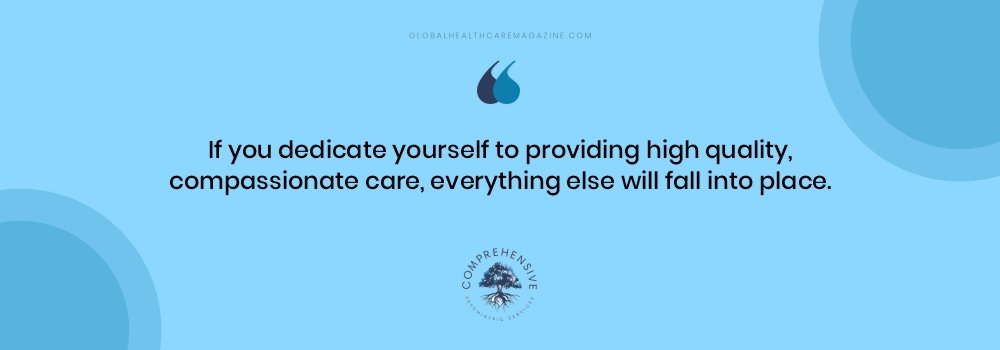
Also Read: The 10 Most Impactful Healthcare Leaders to Watch in 2025

